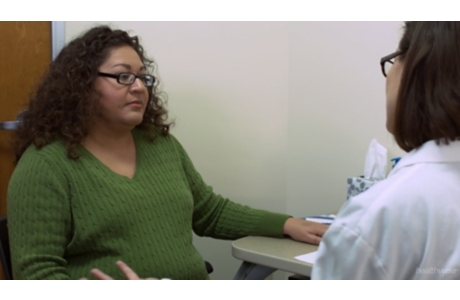Colorectal Cancer Screening
Topic Overview
Screening tests for colorectal (colon) cancer
Screening tests for colorectal cancer look for signs of cancer before you have symptoms. Screening tests for colorectal cancer include:
- Stool tests that can be done at home. They include:
- FIT (fecal immunochemical test). This test checks for signs of blood in small samples of stool. There are no special diets to follow. This test is done every year.
- gFOBT (guaiac fecal occult blood test). It checks for signs of blood in small samples of stool. You will need to avoid certain foods and medicines before doing this test. This test is done every year.
- sDNA (stool DNA). It checks for signs of blood and gene changes in an entire stool sample. This test is done every 3 years.
- Procedures that allow your doctor to look directly at your colon. These tests are usually done in a medical clinic or a hospital. They are done less often than stool tests but require more preparation. Getting ready may include having a liquid diet for a day or two before your appointment and following instructions to clean out your colon. These procedures include:
- Colonoscopy. This test lets your doctor look at the inside of your entire colon. It is done every 10 years.
- Sigmoidoscopy. It lets your doctor look at the inside of the lower part of your colon. It is done every 5 years. (Or you can have the test every 10 years if you also do the FIT every year.)
- CT colonography, or virtual colonoscopy. This test uses pictures taken during a CT scan to look at your colon. This test is done every 5 years.
For people at an average risk for colorectal cancer
Your risk for colorectal cancer gets higher as you get older. Some experts say that adults should start regular screening at age 50 and stop at age 75. Others say to start before age 50 or continue after age 75. Talk with your doctor about your risk and when to start and stop screening.
For people at an increased risk for colorectal cancer
Colonoscopy is the recommended screening test for people at high risk. Your doctor may recommend earlier or more frequent testing if you:
- Already have been diagnosed with colorectal cancer.
- Have a first-degree relative (parent, brother, sister, or child) with an adenomatous polyp or colorectal cancer.
- Have had adenomatous polyps removed from your colon.
- Have inflammatory bowel disease, such as ulcerative colitis or Crohn’s disease.
- Have a rare inherited polyp syndrome, such as FAP or Lynch syndrome (HNPCC).
- Have had radiation treatments to the abdomen or pelvis.
Health Tools
Health Tools help you make wise health decisions or take action to improve your health.
References
Citations
- U.S. Preventive Services Task Force (2016). Screening for colorectal cancer: U.S. Preventive Services Task Force recommendation statement. JAMA, 315(23): 2564–2575. DOI:10.1001/jama.2016.5989. Accessed June 27, 2016.
- Levin B, et al. (2008). Screening and surveillance for the early detection of colorectal cancer and adenomatous polyps, 2008: A joint guideline from the American Cancer Society, the U.S. Multi-Society Task Force on Colorectal Cancer, and the American College of Radiology. CA: A Cancer Journal for Clinicians, 58(3): 130–160.
Other Works Consulted
- Levin B, et al. (2008). Screening and surveillance for the early detection of colorectal cancer and adenomatous polyps, 2008: A joint guideline from the American Cancer Society, the U.S. Multi-Society Task Force on Colorectal Cancer, and the American College of Radiology. CA: A Cancer Journal for Clinicians, 58(3): 130–160.
Current as of: December 19, 2018
Author: Healthwise Staff
Medical Review:Adam Husney MD – Family Medicine & E. Gregory Thompson MD – Internal Medicine & Kathleen Romito MD – Family Medicine & Arvydas D. Vanagunas MD – Gastroenterology
This information does not replace the advice of a doctor. Healthwise, Incorporated, disclaims any warranty or liability for your use of this information. Your use of this information means that you agree to the Terms of Use. Learn how we develop our content.


